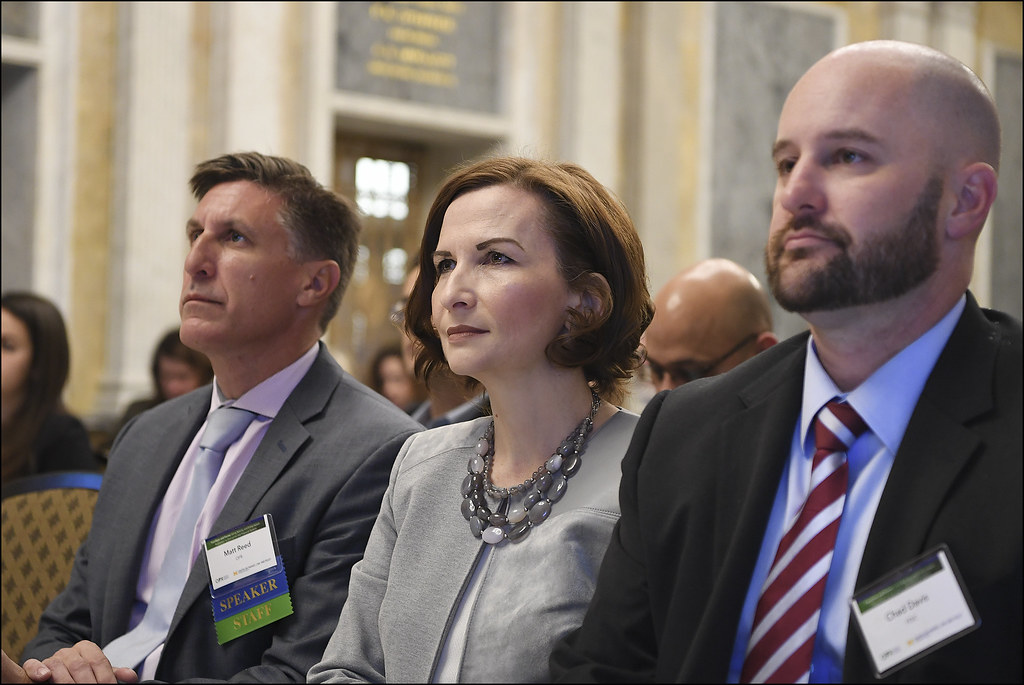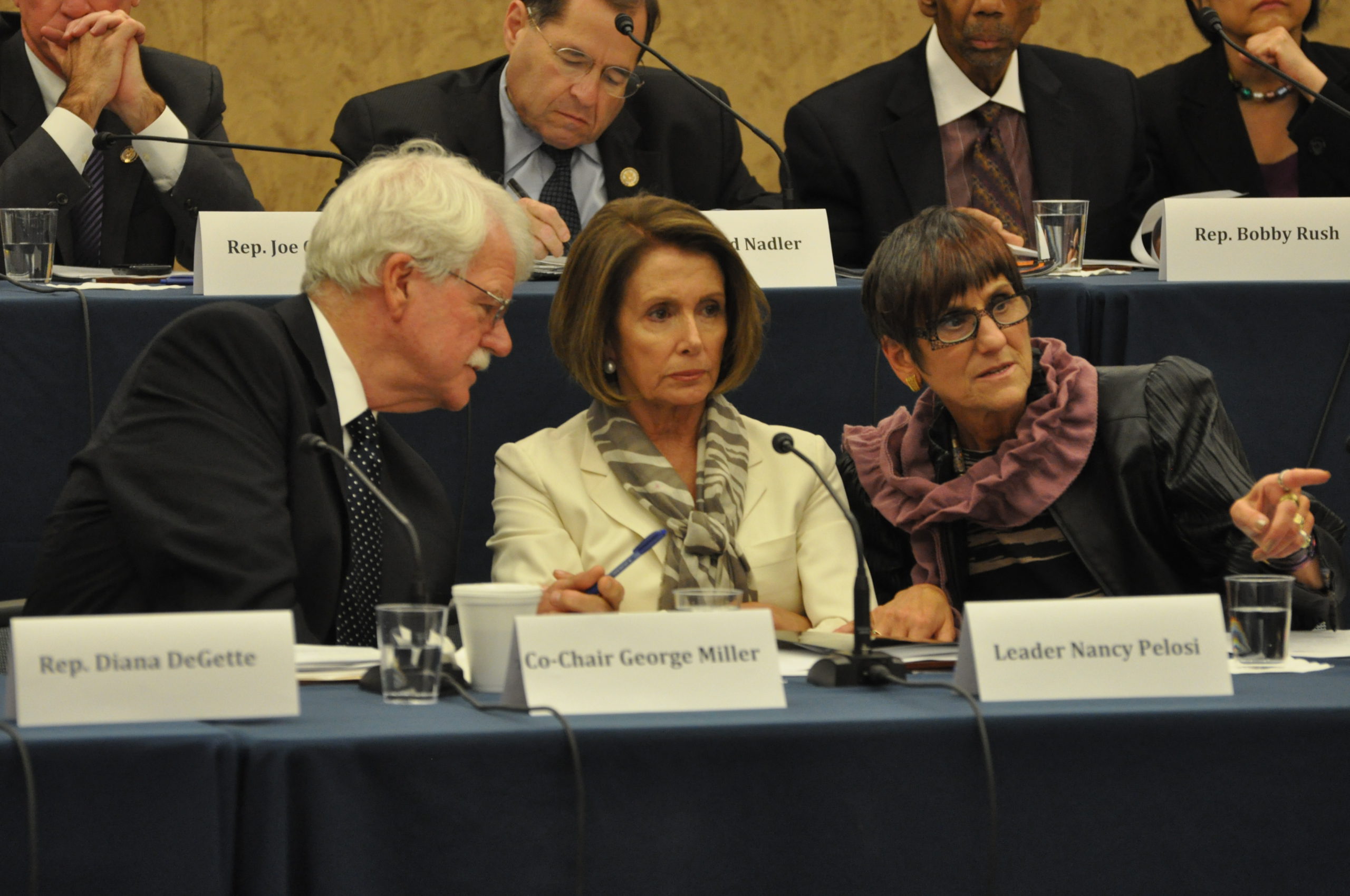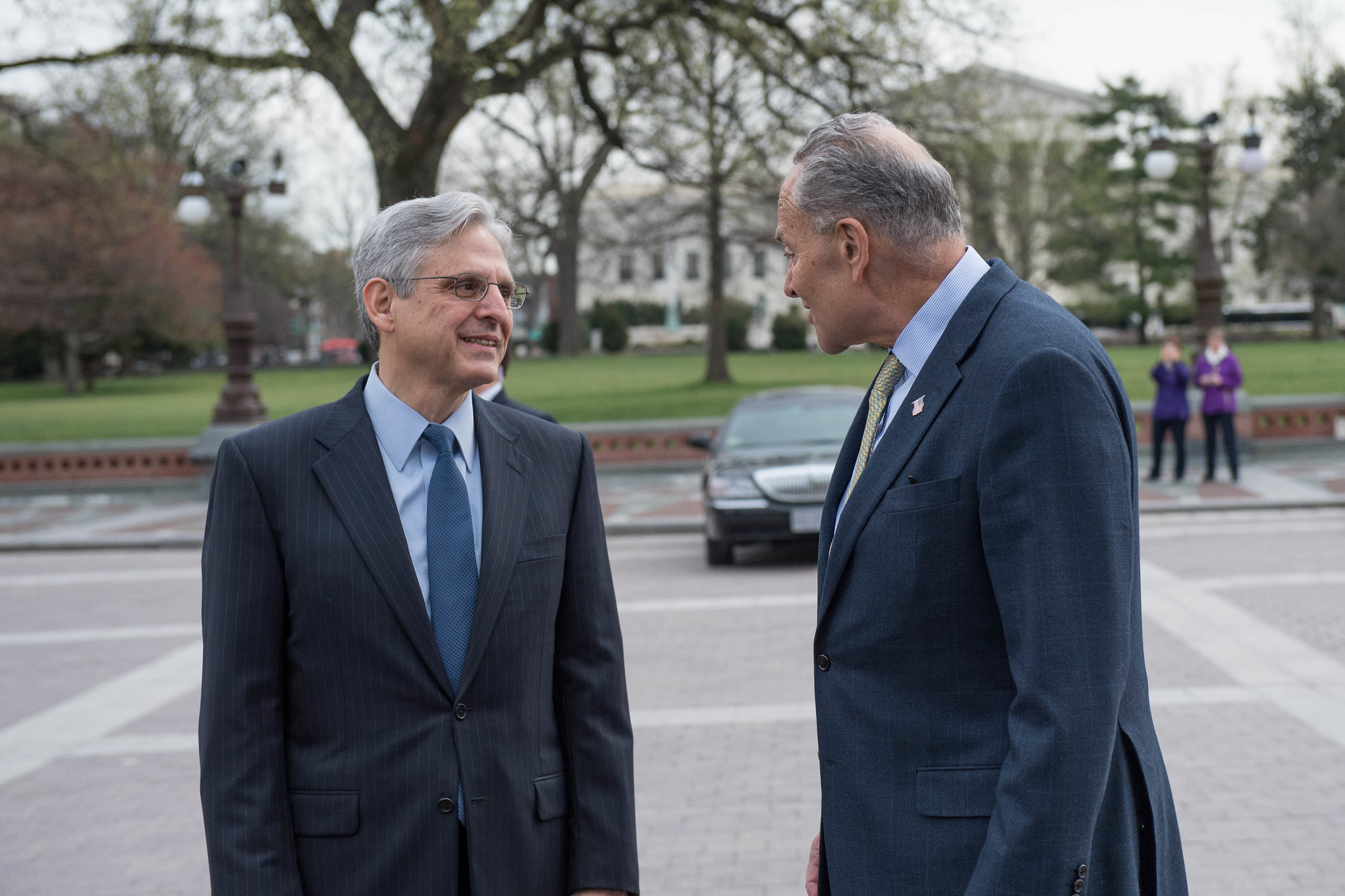Our Blog

September 02, 2022 | The American Prospect
Op-Ed Department of CommerceEthics in GovernmentIntellectual PropertyPatent and Trademark OfficeRevolving Door
Trump’s Patent Director Pressured Judges to Rule in His Law Firm’s Favor
There are numerous ways for the Biden administration to implement these safeguards. One option would be to issue a broad executive order that sets a path to restore public trust in the Patent Office. This order would require that the USPTO create a publicly available record of intervention in appeal proceedings by staff other than APJs, and outline new ethics practices that would ensure key USPTO staff recuse themselves from matters involving prior clients or former employers, and refrain from representing clients or working for companies whose cases they decide for at least three years.

September 01, 2022
RELEASE: FTX’s Revolving Door Hiring And Crypto Policy Proposals Are A Danger To Consumers
Government officials in Congress and at independent agencies like the CFTC should focus on protecting consumers and ignore any entreaties from their former colleagues who now represent the industry’s interests.
August 31, 2022 | Revolving Door Project Newsletter
Hannah Story Brown Toni Aguilar Rosenthal
2020 Election/TransitionConfirmations CrisisExecutive BranchGovernanceGovernment Capacity
The Confirmation Crisis Solidifies
The hyper-politicization of the Senate’s confirmation process, and the manipulation of the procedures by which it is governed, has led us to a dire moment in which Republican Senators have effectively given themselves the power to deny President Biden and the public a fully-staffed federal government. This iniquitous procedural politicking has stalled crucial agencies while denying Democrats rightful majorities at several independent agencies and the long-sought regulatory policies those majorities would bring.

August 30, 2022 | Revolving Door Project Newsletter
Hack Watch: Economists Outraged That Politics Is Hard, Actually
If Jason Furman and Melissa Kearney really want to pass legislation to end the student loan system and make college affordable for all — great! What’s the plan, guys?

August 30, 2022
It's Official: The "Coup" At FDIC Was Led By McWilliams, Not Chopra
It is a significant victory for the rule of law that former FDIC Chair Jelena McWilliams doesn’t get to just nullify the lawful vote of the Board even when she lost.

August 26, 2022 | The American Prospect
Marc Goldwein And The Limits Of Deficit Scolding
“All spending is bad” is simply not a useful principle for assessing all policy. What we spend money on speaks to what our leaders want society to value.

August 25, 2022 | Democracy Journal
Eleanor Eagan Hannah Story Brown
Op-Ed Department of JusticeEthics in GovernmentFinancial RegulationIndependent Agencies
Enforcement: The Untapped Resource
Chronic underfunding means that the agencies with the most laudable missions—the ones seeking to protect ordinary Americans from profit-driven exploitation—often struggle to go up against powerful corporate interests. Strengthening funding for enforcement to protect Americans from environmental, health, consumer, and labor standards violations is an existing, easily justifiable tool for changing that balance of power.
August 24, 2022 | Revolving Door Project Newsletter
Strong on the Law, Weak on its Aims
“They keep thinking like lawyers without applying commonsense notions of right and wrong or trust and accountability,” POGO’s Walter Shaub commented Friday. “This administration is strong on the law and weak on commitment to the underlying aims of an ethics program.”

August 19, 2022 | The American Prospect
Toni Aguilar Rosenthal Hannah Story Brown
Op-Ed Congressional OversightEthics in GovernmentExecutive BranchGovernanceRevolving Door
Where Has Congress Been on Trump Holdovers?
The public hearings conducted by the House Select Committee have exceeded many Democrats’ expectations, not only as conversation-changing political theater, but also as a venue to uncover vital information. For example, the country now knows that Secret Service text messages from January 6th were deleted from phones shortly thereafter in what the agency has called a “planned migration.” This is what congressional oversight activities should do: extract truths from the halls of power and pursue public accountability accordingly.

August 19, 2022 | InsideSources
Open Letter to President Biden on Executive Gun Control Actions
Dear President Biden:
Since the horrific mass shooting in Uvalde, Texas, nationwide calls for stronger gun control have intensified. On May 30, you told reporters that popular legislative proposals like an assault weapons ban and stricter background checks are up to Congress, saying, “I can’t dictate this stuff.”

August 17, 2022
Corrupt Cuffari and our Continued Case for De-Trumpification
Donald Trump is not the only person who has been keeping evidence from law enforcement. The news cycle has been rocked for weeks by revelations that Secret Service agents deleted text messages, wiped their phones, and otherwise disappeared evidence related to their activities during Donald Trump’s attempted coup. These revelations are horrifying, as are the profound dangers such actions pose to our collective safety. Of course, it’s not just the threat to our national, personal, and political security that should inspire terror, but also how these behaviors fundamentally challenge the most effective tool that the public has to ensure accountability from its government: transparency.
August 17, 2022 | Revolving Door Project Newsletter
Con Air
With the signing of the budget reconciliation deal this week, it’s time to give credit where credit is due to Chuck Schumer and Joe Manchin who, in a backroom deal, pulled off what was once unimaginable for 21st century Democrats: getting something done. Of course Biden lifted a hand to sign the bill into law, but what now? As climate activists weigh the outside cost of opening vast swaths of public land for new fossil fuel extraction, the quiet of Biden’s federal agencies is highlighted by the cacophony of the ongoing reconciliation day parade.

August 12, 2022
What The Hell Is Anita Dunn Even Allowed To Work On?
“If the White House is taking its ethical obligations seriously and recusing Dunn from all policy areas where she has money in the game, well, what will she even be doing?”
August 10, 2022 | Revolving Door Project Newsletter
A Janus-Faced Energy Bill Changes the Path Forward
We’re in a big moment, as the political landscape liquifies and reshapes beneath our feet. We at RDP expect to be spending significant time in coming months grappling with the vast impact of the 725-page Inflation Reduction Act and its tag-along coal baron wishlist (aka “permitting reform” bill), from the shifts in executive branch authority, funding, and personnel, to the bills’ diverging impacts on millions of people’s lives, and on ecosystems from Cook Inlet to the Appalachian Basin. Here’s a preview of some of the things we expect to focus on…

August 08, 2022 | Washington Monthly
Why Is Merrick Garland Sticking with Donald Trump on Climate Lawsuits?
It started with Boulder in early February. Then came Baltimore and San Mateo in April. Now Honolulu and Maui are the latest municipalities to overcome a crucial legal hurdle in their fight to make fossil fuel companies pay for their role in climate change. After years of obstruction, it looks like state courts will hear arguments from these cities—as well as several states—that big energy companies knowingly concealed and misrepresented the harms of their products, contributing to climate damages these regions face. Five federal appeals courts have green-lit suing the fossil fuel giants in state court, where these state and local governments have a better chance of prevailing. The stakes are massive: requiring fossil fuel companies to foot the bill for climate change–related damages to U.S. cities and states could easily run into the tens of billions.
